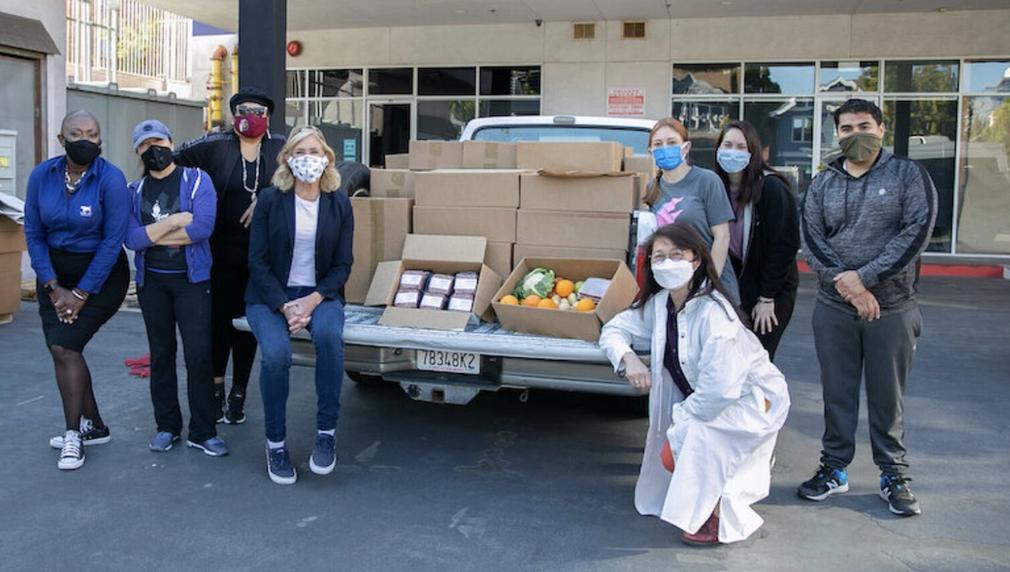Reimagining Nano-Entrepreneurship Mutual Mentorship
Business and professional skills mentorship program for low-income, older and senior BIPOC LGBTQ+ to start-up or expand a nano-business. A nano-business is defined as having no full-time employees and one part-time owner operator. Examples of nano-businesses include a small house plant business, button making business, and recycling. The initial investment or cost to grow is $1000 or less. The return on investment after the first three months should be in the range of $100-$1000 per month. Beneficiaries will be part of an alumni network.

In which areas of Los Angeles will you be directly working?
Central LA
South LA
What is the problem that you are seeking to address?
We are addressing the supplemental income needs of older low-wage earners in BIPOC communities, specifically in Koreatown and South Central Los Angeles. $100-$1000 additional income per month can help people remain housed, meet basic needs, and have a little extra for nice things. Older, low-income BIPOC often suffer from lack of information and minimal resource support to lead secure lives. Our nano-business models also take into consideration mobility barriers and disabilities; and be low labor or minimal labor. Our community driven, multi-ethnic mentors and mentees will also engage in inter-ethnic coalition building, information sharing, and resource pooling to build solidarity. This will help with community safety and the overall well being of Los Angeles residents. Our model has been tested in our direct aid and food aid initiatives. Our current mentorship model has focused on older, low income Women of Color.
Describe the project, program, or initiative that this grant will support to address the problem identified.
We identify older, low-income BIPOC through our existing food aid program that is LA County wide. We will focus on Central LA and South Central LA for our new phase of growth. Beneficiaries will receive support and material resources to start a nano-business (side hustle or side gig). Often the barriers are nominal such as lack of access to a working cellphone, transportation, or lack of bank account. We will work with beneficiaries to ensure they have these basic tools. We will create start-up nano-businesses or expand existing nano-businesses. Example: Jane Kim. She collects recyclables to help make ends meet. We will help her obtain recyclables more easily by working with local businesses to donate their recyclables to her and help with transporting the recyclables. Jane Kim can easily increase her income by many times and reduce time spent collecting recyclables. Her personal safety also increased. Her quality of life increases. Example: Joyce Washington. She has disabilities and is homebound. We will help her start a plant business with several other tenants in her building. She and peers can propagate succulents and hold monthly sales. We will help organize, promote, and market the monthly sales. We will assist with point of sale and payment solutions. Example: Letitia Guevara. Single mother with two toddlers and no transportation. We will set her up with a button making business. Will help her with button design such as logos and slogans.
In what stage of innovation is this project, program, or initiative?
Expand existing project, program, or initiative
Approximately how many people will be impacted by this project, program, or initiative?
Direct Impact: 50
Indirect Impact: 500
Describe how Los Angeles County will be different if your work is successful.
Our pre-pilot nano-business mentorship program has been successful. Example: Zerita Jones was able to start a button making business. She has 900 orders that she can make in 3 hours sitting at her dining room table. She has disabilities and limited transportation. She sells her buttons through community organizations for $1 each. We envision a future with many such nano-business owners that are sustainable and increase quality of life. The intended impact is to build community health one person at a time. In making our program multi-ethnic, we also improve cultural relations in LA County and share knowledge with each other. Our information sharing network can also be used to share information about many resources such as mental health services, health services, cash aid, grocery vouchers, etc.. When more low-income, older BIPOC are part of a knowledge network, their safety and community safety increases.
What evidence do you have that this project, program, or initiative is or will be successful, and how will you define and measure success?
We measure the impact through feedback from the beneficiaries. We know that $500 in additional income per month has helped Zerita Jones pay for basic needs like food and utilities. It helps keep her housed and improved the quality of her life. We helped David, an 88 year Black man, by saving recyclables for him. He was living out of a van. The additional income helped with gas. Because he was a part of our knowledge network, we were also able to help him with a ticket and prevented his van from becoming impounded. After 3 years, he was able to find a room that he could afford. We helped Peter Kim with his knife sharpening business by getting him two additional customers per month. $100 per month was all he needed to remain housed. We measure outcomes with the beneficiaries.
Which of the LIVE metrics will you impact?
Poverty rate
Resilient communities
Older adult well-being
Indicate any additional LA2050 goals your project will impact.
LA is the best place to LEARN
LA is the best place to CREATE
LA is the best place to PLAY
LA is the healthiest place to CONNECT